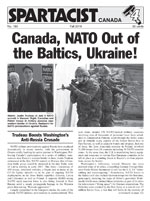
Letters A Matrilineal Society In China 2 June 2016 Hi everyone, I wanted to recommend a book I recently finished reading called Leaving Mother Lake: A Girlhood at the Edge of the World by Yang Erche Namu and Christine Mathieu. I ordered it from Indigo after seeing it referenced in Sex at Dawn; it is the biography of a Moso woman growing up in post-1949 China. The Moso are a people who never discarded matriliny, although the Cultural Revolution shamefully and unsuccessfully tried to enforce “socialist family” norms upon them. In short, households are headed by women, whose male and female children remain in the family home; female members of each household each have a room to which they invite lovers to spend the night and leave in the morning. According to the anthropologist who co-authored the book, “Chinese chronicles describe the ancient Qiang, who are among the Naxi and Moso’s more distant ancestors [The Naxi are another minority people of the region], as people who ‘knew their mothers but not their fathers.’ Other records give the details of a Qiang matriarchal state called Dong Nü Guo—the Eastern Country of Women.” Nevertheless, she still has the temerity—a requirement for achieving a degree in anthropology these days, it seems—to slander Engels: “scholars fail to convince when they try to explain (after Engels) that Stone Age people were mother-centered because they did not understand the part played by men in procreation.” Anyway, I found it a very enjoyable read. It’s a fascinating picture of life in a matrilineal society and an interesting glimpse of life in the Chinese deformed workers’ state at the time. Hope things are well with all. Fraternally, SC replies: We thank Matt for his interesting letter. SC readers who wish to learn more about the Marxist approach to women’s liberation are referred to the article “Communism and the Family” in Workers Vanguard (Nos. 1068 and 1069, 15 and 29 May 2015), and to Friedrich Engels’ 1884 classic, The Origin of the Family, Private Property and the State. |
|
||||||||||||||||||||||||||||||||||||||||||||||||
